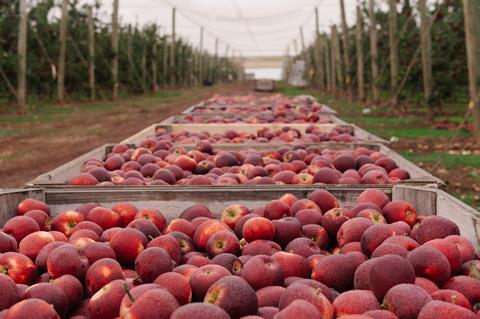Increased volumes meet growing demand across Australia’s eastern states
The Australian growers of West Australian-bred Bravo apples are set to harvest approximately 25 per cent more fruit this season.

Managing director of the brand’s Australian marketer WA Farm Direct, Jenny Mercer, said the increase in volume was due to additional plantings and orchard maturity.
Nearly 300ha of the variety ANABP 01 which produces Bravo apples are under cultivation by some 85 growers in key apple-growing regions of Western Australia, New South Wales, Queensland, South Australia and Victoria with plantings expanding year-on-year as demand grows in Australia and globally. The largest of these growing regions are Shepparton, Victoria and Manjimup, Western Australia.
“Plantings are increasing in all key growing states with plans to support both domestic and export markets over the next decade,” Mercer said. “Some trees are mature and in full production while younger plantings are still maturing.”
Bravo apples were launched in Western Australia in 2016 and have been available on the east coast in small volumes since 2019. As volumes increase, Mercer said the deep burgundy apples are gaining ground as a consumer favourite across Australia’s eastern states.
The Bravo apple harvest starts in Western Australia and Queensland in March-April and ends in New South Wales and Victoria in May. Apples are stored in controlled atmosphere conditions for distribution from April to December.
“Our growers are the lead characters in the Bravo story and the brand’s success is testament to their efforts,” Mercer said. “They are passionate producers who have a rich tradition of growing superb Australian apples forged by generations before them. Their apple-growing expertise, combined with world-leading technologies from farm to table, is now being passed on to the next generation of growers.”
Bravo has also been growing in popularity in international markets.
“The distinctive colour, flavour and health attributes are prompting strong international interest from our growing export markets in Asia and the Middle East,” Mercer said.



